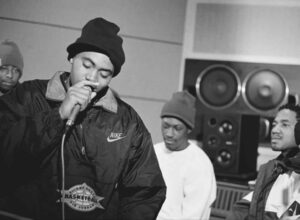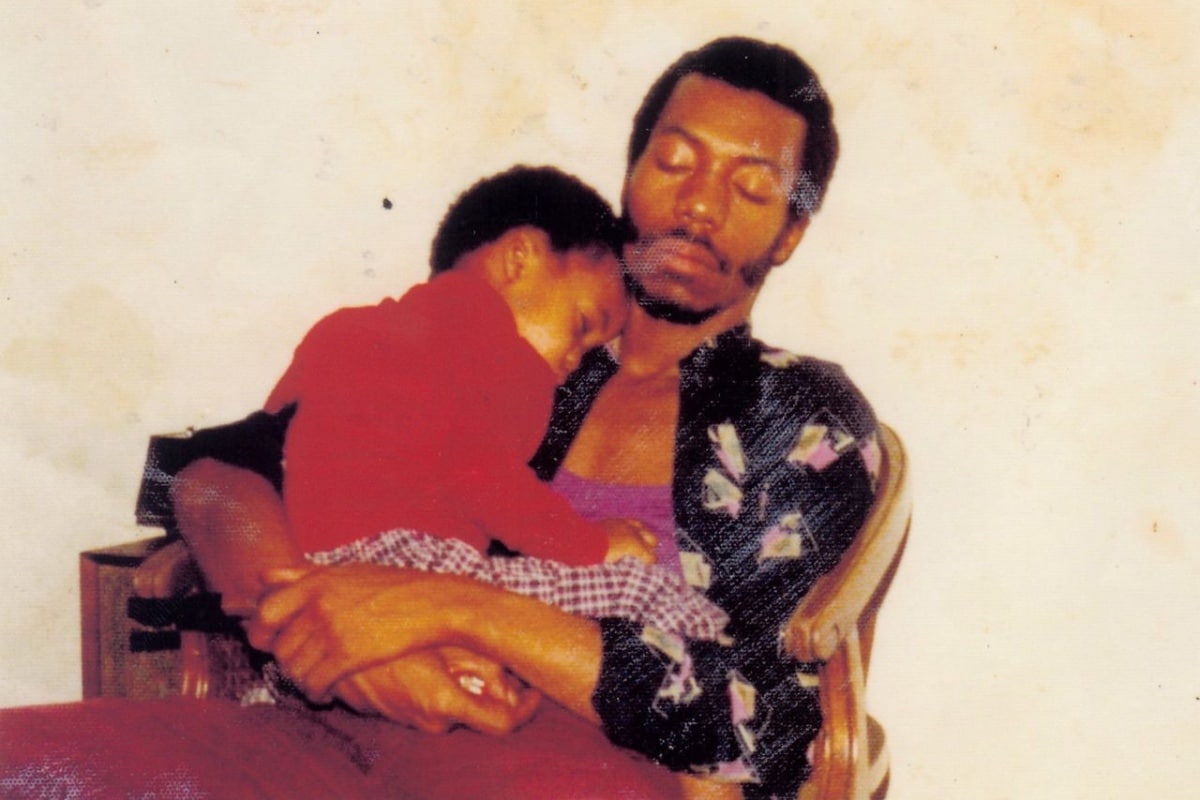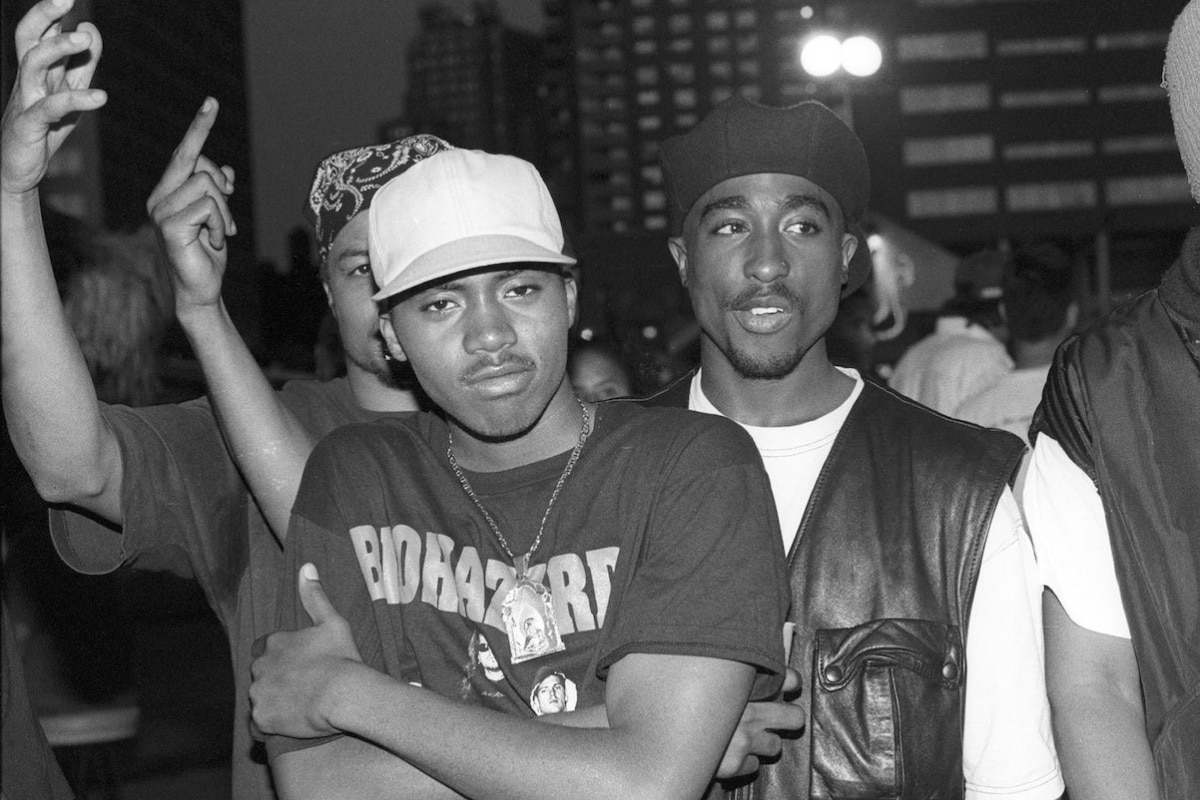We’re peeling back the layers of the bombastic, bridled beast that is “Magic 3” by Nas. This ain’t no pedestrian track-by-track review, nah, we’re diving into the marrow of the words, penetrating the core of the narratives that make up the heart of this album. From the gritty corners of Queensbridge, Nas has grown into a legendary emcee, hustling his way to the top of the game, trading raw rhymes for raw respect.
“Magic 3” drops fresh science, each track a testament to the man’s lyrical dexterity and innate ability to turn street tales into universal truths. We got joints like “Superhero Status” and “No Tears” that showcase Nas’ game-changing ethos, while tracks like “Pretty Young Girl” and “Based On True Events” blend autobiographical nods with poetic license, echoing the spirit of the golden age of hip hop. From the introspective depths of “Sitting With My Thoughts” to the unabashed swagger of “Blue Bentley,” the album is a testament to Nas’ range and relevance — a tour de force in the cluttered landscape of today’s hip-hop.
So, whether you’re a day one disciple or a newly minted member of the congregation, prepare to delve deep into the genius of Nas. Unpacking these rhymes ain’t for the faint of heart. So let’s get into it. From “Fever” to “1-800-Nas&Hit,” here are the Breaking down the Lyrics on ‘Magic 3’ by ‘Nas.’
1 Fever
“Fever” is a profound exploration into the artist’s legacy and evolution. From cunning child of NYC to a veteran OG, Nas delivers a complex narrative that mixes personal growth with hip-hop history. His verses cleverly align his rise with the various phases of the genre, highlighting his influence and endurance. Noteworthy is his reflection on turning fifty (half a century), marking it as a milestone, not just for him, but also for the culture he represents. As he contemplates his past, he acknowledges the grind that got him here, hinting at triumphs and tribulations, but always emphasizing resilience. The chorus, a call to ‘represent’, serves as a two-fold homage – one to his past identity and the other to his undying impact on hip-hop music.
2 TSK
“TSK” is a lyrical clinic of a veteran emcee schooling newcomers on the rules of the game. The track explores themes of authenticity, self-assurance, and the harsh realities of the music industry. Nas recalls his journey from banging on tabletops to crafting timeless hits, representing the raw, unfiltered essence of hip-hop. He calls out the clones and the fakes flooding the game, asserting that his artistry, staying power, and influence are unrivaled. Some lines suggest a return to his ‘Nasty Nas’ persona, a nod to his roots, his combative, gritty lyrical prowess, and unyielding presence. The song is a testament to his longevity and an assertion of his continued dominance – a reflection of an artist evolving while staying true to the essence of his craft.
3 Superhero Status
In “Superhero Status,” Nas fashions himself as a capeless crusader of the rap game, taking listeners on a journey of his perspective on life and the music industry. His bars, stripped of gimmicks (masks and gadgets), stand strong on their own, cautioning against the superficiality of fame and the delusions it can foster. He preaches about resilience in the face of adversity, reminding us of his roots in humble beginnings. His lyrics echo with social commentary, like a street poet highlighting overlooked and ignored talents while critiquing the culture of entitlement. He also exposes the raw battlefront of aging in a game that often forgets its pioneers. Inevitably, though, Nas transcends these struggles, assuming a ‘superhero status’ without the theatrics, his power harnessed from authenticity, self-awareness, and unwavering dedication to his craft.
4 I Love This Feeling
Nas’s “I Love This Feeling” is a deep dive into the complex facets of the rapper’s life, offering listeners a firsthand look at his highs and lows. The lyrics vividly depict his journey from the gritty streets to the top of the hip-hop pyramid. With an introspective tone, Nas reveals his love for the game, his team, and the feeling of success, regardless of the struggles and distractions that come his way, from old dudes playing chess in the park to those in prison wrangling for visits. He also delves into the themes of business acumen, energy transferal, and immortality, opening up about the challenges and rewards of stardom, and ultimately, he emphasizes that if you don’t have a team that’s militant, you better be mentally equipped. Nas cleverly adventures into a self-aware narrative, keeping his listeners hooked as they navigate through his lyrical maze.
5 No Tears
“No Tears” is a reflective autobiography laced over a classic beat. The lyrics reflect a life filled with struggle, triumph, and self-awareness that Nas has journeyed through. He paints a vivid picture of his troubled upbringing in the Queensbridge projects (“QB crazy”), emphasizing the influence of the environment on his life (“you a ghetto baby”). The song exemplifies a rite of passage, where he confronts his past with the wisdom of his present, coaching the younger Nas through the lyrics.
Direct references to his encounters with the law, losing friends, missing out on time with his son are candid acknowledgements of his past – a potent reminder that the road to the top wasn’t free of bumps. The refrain “No tears on your face, none” resonates a strong sense of resilience and determination that no matter the obstacles, he would remain steadfast. The final verses see Nas passing on wisdom to his younger self, and celebrating his achievements (“That’s when you get rich, rich, rich, rich”). A motivational anthem that encourages perseverance in the face of adversity, “No Tears” is Nas, the seasoned rapper poet, using his life as an inspirational playbook.
6 Never Die (feat. Lil Wayne)
Featuring Lil Wayne, “Never Die” ain’t just another track, it’s a bold manifesto declaring their undying influence and legendary status in the rap game. Nas comes right out the gate with reflective bars about his position in the music industry and his enduring relevance. The verses unspool like the intricate threads of his mind, touching on his transformative journey from old-school NY to the new-school vibes. We see Nas calling on the spirits of his iconic predecessors, while also highlighting his unique contributions.
Then enters Weezy, who’s spitting fire, adding a layer of intensity to the track. He’s going hard with dizzying flows, roaring with that signature southern swagger, and dropping vivid imagery in his lyrics. He playfully embraces the role of rap mentor, coaching other rappers who can’t match up to his exceptional wordplay. The hook, haunting and yet relentlessly hopeful, asserts their immortality, reminding everyone that their influences will forever echo in the annals of hip-hop.
“Never Die” is a testament to Nas and Lil Wayne’s resilience, lyrical prowess, and lasting relevance. It’s brash; it’s celebratory; it’s an affirmation of icon status, echoing the voices of two giants refusing to be silenced. It’s a ballad of undying legacy wrapped in hard-hitting bars and irresistible flows.
7 Pretty Young Girl
In “Pretty Young Girl,” Nas takes us on a lyrical journey of his pursuit for a woman whose beauty and aura have captivated him. He drops some vivid imagery, portraying the woman as a queen with a gangster father who’s a Nas fan. The song is stacked with references to her physical attractiveness and Nas’ determination to find her, highlighting the mystery and allure that surrounds this elusive figure. Nas also serves thoughtful bars about his intentions with her, promising intellectual engagement, romantic escapades, and shared musical moments. There’s a sense of urgency, a quest that’s sort of romantic, yet grounded in Nas’ street-smart sensibilities. The entire vibe is all about elevation—transforming a simple attraction into a potential enduring relationship. The recurring line “There was a pretty young girl” gives the song a bluesy mantra vibe, almost a call and response tradition that connects Nas’ search with hip-hop’s African roots.
8 Based On True Events
On “Based On True Events”, Nas peels back the curtain on a complex narrative filled with emotional intensity and personal revelations. The story revolves around personal relationships, the concept of trust, and how quickly they can become entwined with the grim realities of street life. Nas unpacks a scenario, where his partner’s association with a less than trustworthy character brings forth a wave of paranoia and suspicion. This suspicion turns to contemplation as Nas reflects on unresolved murders in his circle and the grim reality of life in the projects.
As the track progresses, Nas delves deeper into the implications of these connections, leading to an increasing sense of paranoia. He grapples with the realities of street life, questioning the circumstances surrounding the death of his friend Half A Mill. His lyrics paint a disturbing picture of the landscape where he grew up – peppered with drama, homicide, and suicide – and how this arena affects those who call it home. As the lyrics unfold, Nas doesn’t shy away from vulnerability, expressing his struggles with love and loss intertwined with his hardened sensibilities.
9 Based On True Events, Pt. 2
Yo, we’re in for a ride, in Part 2, Nas weaves a vivid narrative about a high-stakes game in a gripping story told in three chapters, like verses.Verse one introduces our protagonist, a player who’s feeling the heat from street gossip and the burden of being surrounded by negative energy. His fresh cut and icy chains juxtapose with his confusion and apprehension.
Verse two dusk falls, and the plot thickens as our main man hops on a plane, pondering a big move that could conquer the summer. Amidst reminiscing about past relationships and potential real estate, there’s a growing sense of unease. He can’t reach his homie, and his instincts are tingling, foreshadowing something sinister.
In the final chapter, the tragedy hits. Landing in the baggage claim, the tension is palpable. A betrayal, a setup, and a violent ending are a grim reality of this high-stakes game. Nas’s lyricism is a reminder that the game ain’t always pretty, and it’s often deadly.
10 Sitting With My Thoughts
Getting down to the nitty-gritty of “Sitting With My Thoughts,” Nas flexes his lyrical prowess, painting a vivid journey of his life and struggles. He goes deep, reflecting on the raw realities of a young hip-hop artist, and his evolution through the game. Nas ain’t forgetting his roots, referencing OG’s and talking ’bout how bouncing back from losses is a shared trait amongst real players. As he gets personal, touching on family, pregnancy, and the city hustle, one can’t help but feel the beats of his heart echoed in the rhythm. Nas beautifully balances his storytelling with a solid commentary on the music industry, reinforcing his independent spirit and focus on his art. The tribute to Nipsey Hussle and the acknowledgment of his fellow rappers further cements the track as a testament to the brotherhood in hip-hop. For the listeners, it’s not just a song, but an invitation into Nas’s internal world, a chance to sit with his thoughts.
11 Blue Bentley
On “Blue Bentley,” Nas brilliantly portrays the luxury and opulence of his current lifestyle. The track has Nas telling us about his wealth represented by his two-story home and blue Bentley, which he goes at length to make sure we know. By mentioning two females who both want to be with him and travel with him, Nas touches on the allure of his fame and success. The lyrics also hint at how he’s mastered the art of handling fame and maintaining boundaries, asserting his nonchalant attitude towards the drama. This song is a masterstroke in storytelling where Nas depicts his life’s glamour while acknowledging the associated challenges and complexities. Nas remains the slick storyteller, sharing vivid stories of his life, which contribute to making ‘Magic 3’ as enchanting a listen as it is.
12 Jodeci Member
“Jodeci Member” sees Nas at his resplendent best, reflecting on his journey from an up-and-coming artist to a veteran rap mogul. He flexes his financial freedom and mental maturity, acknowledging the envy it incites in others while dismissing it as unreal. Moving beyond materialistic flexing, he takes aim at his lyrical counterparts, confidently claiming ownership of a rap scene littered with fabrications and petty competition.
As Nas delves deeper into the narrative, he skillfully uses the metaphor of trying new things to encourage exploration of unknown territories, be it unfamiliar fashion, untried food, or a love never felt before. Nas juxtaposes his hard-nosed hustle with softer, more introspective moments, creating a balance and depth to his lyrical persona.
He acknowledges the potential of women, not just as muses, but as hustlers in their own might, suggesting that a woman’s touch could be the secret ingredient to a hit song. The song concludes with Nas leaning into the ‘love guru’ role, wooing his audience with the allure of a love yet unexperienced—a fitting finale to a song that takes us on a journey of self-discovery, growth, and undeniable swagger.
13 Speechless, Pt. 2
“Speechless, Pt. 2” by Nas is the lyrical godfather spittin’ bars with the introspection of a seasoned pro. He gets real, reflecting on life’s highs and lows, beginnings and endings. Starting off, he lays out his disdain for media scrutiny, underlined by a desire not to seem desperate for attention. Then, he delves into his shift from stone-cold street soldier to a striving perfectionist, constantly checking if he still got that Nas magic.
The Queensbridge wordsmith then moves deep into his come-up story, providing vivid images of his early life – curfews, key around his neck, and the gritty reality of the streets. He doesn’t shy away from revealing his fears, like grabbing the TEC for his respect. He ends with a powerful commentary on AIi’s replication and control, asserting his uniqueness with a declarative punch: “You can redo the voice but you can never read my mind”.
He then moves on to touch upon societal points including the state of his nation’s consciousness and the impact of politics on the individuals. He casts his concern for “black babies with low confidence,” laying out his hope and optimism for the future. The track closes with a deep cut tribute to Don Cornelius, the legendary host of “Soul Train”, showing Nas’ ever-present connection to black cultural icons. Overall, “Speechless Pt. 2” stands as a bold, insightful manifesto, placing Nas’ lyrical prowess, social critique, and unapologetic authenticity on full display.
14 Japanese Soul Bar
On “Japanese Soul Bar”, Nas takes us on a soulful journey to the East, paying homage to the love for hip-hop in Japan. He visualizes a setting where he’s relishing Scotches and cigars amidst the Eastern ambiance. Nas intertwines the track’s theme with references to lucrative deals and owning his masters, underscoring his business acumen. He also reminisces about industry legends like G-Rap, Rick Rubin, and Andre Harrell’s contributions to hip-hop’s evolution.
Narrating the continuous hustle of his career, Nas reveals a glimpse of his ambition to direct while reflecting on his humble beginnings. He soulfully expresses his dedication to the game, ready to step away if it ever loses its genuine essence. The rapper then shifts to lighter notes, imagining himself singing Barry White songs at Karaoke in Tokyo and Belize, encapsulating the joy in the journey.
In the song’s outro, Nas acknowledges his status as a living legend and an inspiration to old and new rappers alike, honoring his roots in the old school while embracing the freshness of the new. Throughout “Japanese Soul Bar”, Nas draws parallels between his personal growth and hip-hop’s global expansion, grounding his story and aspirations in the genre’s rich history and rising influence.
15 1-800-Nas&Hit
“1-800-Nas&Hit”, a standout cut from Nas’ album, ‘Magic 3’, showcases the Queens rapper dropping knowledge with the same piercing intensity that’s become his trademark. Nas effortlessly blends commentary on black politics, hood tales, and life’s vices to craft an impressive lyrical canvas. The track finds him drawing parallels between historical figures like Huey P. Newton and Malcolm X, asserting they’d probably resonate with his lyricism if they were rappers. Nas continues with his no-nonsense approach as he admonishes against being swallowed up by Hollywood’s allure, and advocates for uncluttering the mind, living healthily, and implementing visionary ideas. Nas also flexes his musical muscle, claiming his impact in the music scene and claiming his spot as a source of inspiration. Then, there’s a salute to family, particularly the next generation, underlining the continuation of legacies. It’s Nas in his element – raw and uncompromising.









